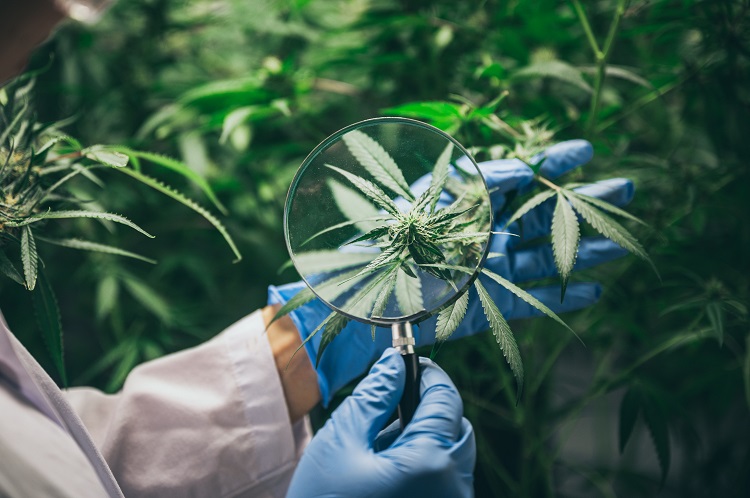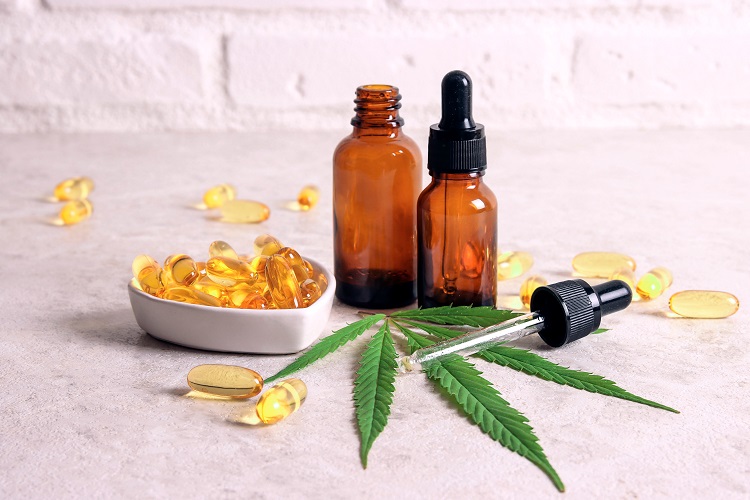Le CB9 and CBD are two distinct compounds found in cannabis. However, the compounds most commonly encountered and mentioned are THC and CBD. The CB9 is less well known, but is now attracting the attention of researchers and cannabis enthusiasts alike.
At first glance, CB9 appears to be another member of the growing list of cannabinoids, but a closer look reveals that its properties and potential are distinctly different from those of the more famous CBD. This article, MariSwiss will be compiling sources of knowledge to delve into the world of CB9, exploring exactly what it is and how it differs from CBD.
What is CB9?
CB9, like other cannabinoids, is a chemical compound derived from cannabis. However, its specific chemical structure has not yet been widely published in the scientific literature.
CB9 is a derivative of CBD (cannabidiol). Found in the cannabis plant, it is one of the most potent substances in the plant. 100 cannabinoids identified in the plant. It has a five-carbon chain and a chemical structure similar to that of the better-known CBD. But as we know, even a small change in chemical structure can lead to different effects from cannabinoids. This is also the case for CB9, which, unlike CBDhas psychoactive effects.
The discovery of CB9 is much more complex than that of the other cannabinoids, which poses a major challenge for scientific research.

Formation and chemical composition of CB9: The cannabinoid CB9 is created by a complex chemical reaction in the cannabis plant, with other cannabinoids (THC and CBD) acting as precursors. Research is currently underway to reveal the exact mechanism by which CB9 is formed. CB9 has no tendency to crystallise, which clearly distinguishes it from other cannabinoids.
Biological effects: Due to a lack of research, the biological and pharmacological effects of CB9 are not clearly defined. It could have effects similar to those of other cannabinoids, but this needs to be confirmed by further research.
Therapeutic potential: The medicinal properties of CB9 are remarkable, and although research into this cannabinoid is still in its infancy, its future looks very promising. Studies are currently underway to determine whether this compound could be beneficial in the treatment of various medical conditions such as chronic pain, inflammation and possibly neurodegenerative diseases.
CB9 could also help reduce stress and anxiety. If CB9 has sedative properties, it could be useful in alleviating sleep problems.
Legality and use: At present, CB9 is not widely known in commercial products and there is no specific information on its legal status in many regions.

Comparison between CBD and CB9
CBD (Cannabidiol)
Origin: Extract of cannabis, particularly the hemp variety.
Chemical structure: CBD has a clearly defined and widely recognised chemical structure.
Biological effects:
Does not produce psychotropic effects (does not make you "high").
Numerous medical effects have been studied and confirmed, such as reducing pain, anxiety and inflammation, and helping to treat epilepsy (e.g. the drug Epidiolex).
Often used in health and beauty care products.
Legality: In many countries, CBD is legal and widely used in various commercial products.
Research: There is a great deal of scientific research into CBD, clearly defining its effects and mechanisms of action.
>> Maybe you're interested: Find out all about CBD flower: Benefits, Uses and Advice
CB9 (Cannabinoid 9)
Origin: Also found in cannabis, but less common than CBD.
Chemical structure: The chemical structure of CB9 has not been widely published and is not well known in the scientific literature.
Biological effects: Due to the lack of research, the specific effects of CB9 are not clearly defined.
It could have medicinal properties similar to those of other cannabinoids, but this needs to be confirmed by further research.
Legality: There is no specific information on the legal status of CB9 in many regions. CB9 is not widely known in commercial products.
Research: There is little or no detailed research on CB9, so knowledge of this compound is very limited.
In a nutshell
CBD: Well-studied and with many medical applications, does not cause psychotropic effects, legal in many places.
CB9: Less well known and less studied, effects and legal status undefined, not common in commercial products.

Is CB9 legal in Switzerland and other European countries?
The legal status of CB9 in Switzerland and the EU remains uncertain due to the lack of information on this specific cannabinoid. However, we can compare it with similar substances to deduce its potential legality.
Switzerland has a progressive position on food-based products. cannabis. Le CBD (cannabidiol) is legal and widely used, as it contains less than 1% of THC. High-THC cannabis has been decriminalised in small quantities, with recreational pilot schemes being explored in cities such as Basel. However, the more potent synthetic cannabinoids and their derivatives, such as HHC (Hexahydrocannabinol), have been banned in Switzerland since April 2023, suggesting that more recent cannabinoids such as CB9 could be subject to similar monitoring until specific regulations are developed.
In the wider EU context, the legality of cannabinoids varies considerably. CBD is generally legal throughout Europe, as long as it contains less than 0.2-0.3% of THCdepending on the country. However, new cannabinoids and synthetic cannabinoids are often more strictly regulated or banned, as we have seen with substances such as HHC. This fragmented legal landscape means that any new cannabinoids, including CB9, will probably have to be assessed on a country-by-country basis within the EU to determine their legal status.
Given the trend towards increased regulation and monitoring of new cannabinoids, it is advisable to keep up to date with specific national regulations if you are interested in CB9, as its legal status could change rapidly depending on legislative or scientific developments.
And finally.., MariSwiss believes it is important to remember that products containing CB9 or any other cannabinoid, whether of natural or synthetic origin, are not yet widely used in the medical field. Consequently, their use cannot be considered a substitute for appropriate medical treatment in any situation. In the event of any doubt or potential medical condition, it is always advisable to consult a healthcare professional to assess each specific case and follow the appropriate medical indications.

